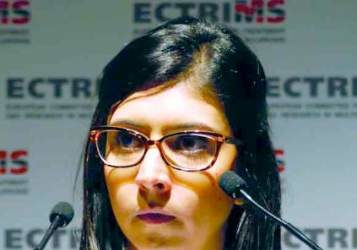Fewer than 1 in 10 oncology patients demand specific tests or procedures, and their physicians do not often concede when such demands are inappropriate, according to a study published Feb. 12 in JAMA Oncology.
Dr. Keerthi Gogineni and her colleagues at the University of Pennsylvania, Philadelphia, interviewed clinicians working in outpatient oncology clinics at three Philadelphia area hospitals regarding patient encounters between October 2013 and June 2014. A total of 34 oncologists, 11 oncology fellows, and 15 nurse practitioners/physician assistants were interviewed. Among the 5,050 patient encounters, patients demanded or requested treatments in 9% of cases. About 72% were clinically appropriate requests, while 11% were deemed clinically inappropriate by the health providers (JAMA Oncology doi:10.1001/jamaoncol.2014.197 ).
Of the 440 patient requests, 216 (49%) were for imaging studies; 68 (16%) for palliative treatment of pain, insomnia, or other symptoms; 60 (14%) were for laboratory tests; 23 (5%) were for genetic or chemosensitivity analyses; 30 (7%) were for a clinical trial or experimental treatment; and 16 (3.6%) were for a specific chemotherapy, drug, or biologic agent. (The remaining requests were categorized as “other.”)
Oncology team members agreed to 310 (98%) of the 316 clinically appropriate requests. Of the equivocal ones, they complied with 48 (65%). And among the 50 clinically inappropriate demands or requests, physicians and other providers complied with 7 (14%). Of the total 5,050 patient encounters, clinicians ordered tests or procedures based on improper demands in less than 1% of encounters.
Researchers found no association between patient demands and patient sex, age, race, type of insurance, approximate household income, disease stage, treatment intent, visit type, clinician type, clinician race, or hospital.
Given the rarity of clinically inappropriate demands or requests and that few were complied with, such improper requests are unlikely to add significantly to health care costs, Dr. Gogineni and her colleagues concluded, adding that even requests for clinically appropriate interventions could suggest lack of trust between the doctor and patient and threaten the therapeutic relationship.




